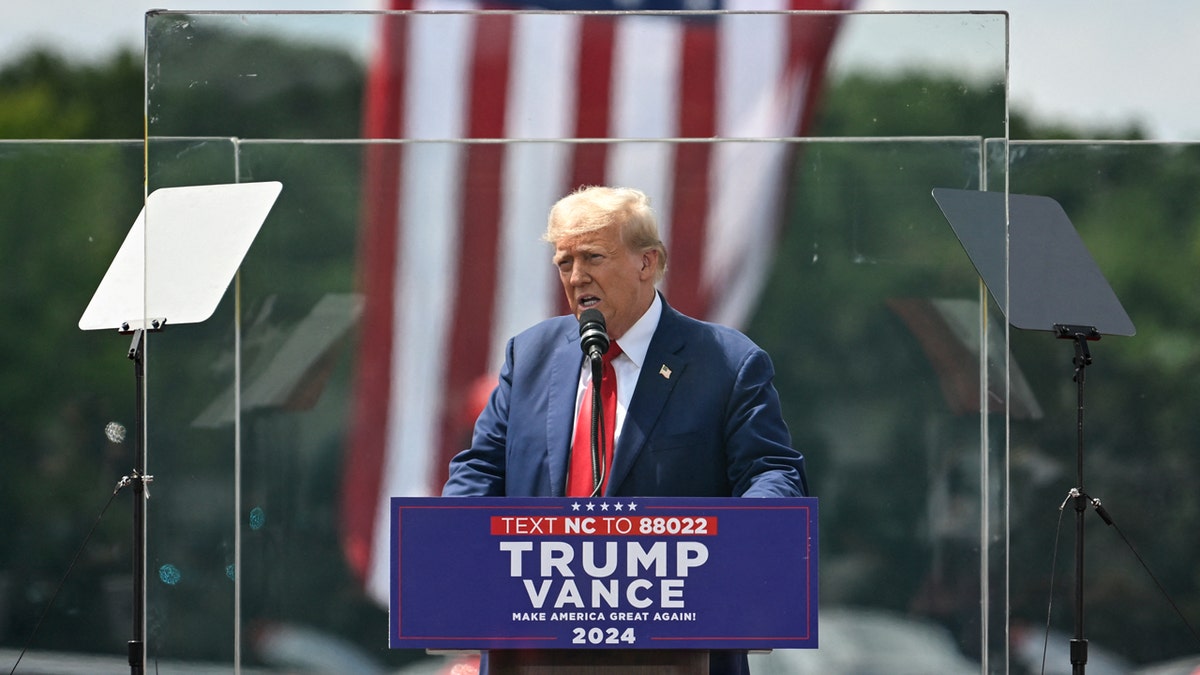Vice President Harris infused Democrats with optimism as the 2024 election cycle heads for the home stretch.
There was real concern that a continued campaign by President Biden might suppress Democratic turnout. That would damage an opportunity by Democrats to reclaim the House and even hold the Senate.
But the rapid ascendancy by Harris to the top of the ticket changed all of that.
BLOWING OFF THE WINDY CITY: SOME DEMOCRATS GIVE KAMALA AND THE DNC A COLD SHOULDER
Fundraising for House Democrats soared – especially in July. House Democrats were already leading their Republican counterparts at the end of June. The GOP brass implored rank-and-file Republican members to bolster their money game. Leaders requested Republicans to cough up cash to help safeguard the GOP majority.
“It was a great response. Everyone stepped up. We had a number of people pledge more money to the committee,” said Rep. Richard Hudson, R-N.C., head of the National Republican Congressional Committee (NRCC). “We don’t have to match them. But we’ve got to be in the game.”
Democrats must only flip a handful of seats to gain control of the House. California and New York are ripe for Democrats to win seats. But they must also preserve vulnerable Democrats in red or battleground districts. Think Reps. Mary Peltola, D-Alaska, and Marie Gluesenkamp Perez, D-Wash.
Frankly, it’s tough for Democrats to hold the Senate. The Senate currently features 50 senators who caucus with the Democrats and 49 Republicans. There is a temporary vacancy after the resignation of former Sen. Bob Menendez, D-N.J., following his conviction on corruption charges. Sen. Joe Manchin, I-W.V., currently caucuses with the Democrats. But he’s retiring. West Virginia Gov. Jim Justice (R) is expected to win that seat for the GOP. Democrats must retain several very competitive seats in either red or battleground states. Those Democrats on the ballot this fall include Sens. Bob Casey, D-Penn., Sherrod Brown, D-Ohio, Tammy Baldwin, D-Wisc., Jon Tester, D-Mont., and Jacky Rosen, D-Nev. Democrats are also trying to hold seats in swing states like Michigan and Arizona. Sens. Debbie Stabenow, D-Mich., and Kyrsten Sinema, I-Ariz., who caucuses with the Democrats, are both retiring.
But Democrats are brimming with optimism. That’s partly because they believe they can sell a more optimistic message compared to the rhetoric of former President Trump.
“(Vice President) Kamala Harris is an inspiring young candidate. A fresh face which people in this country have been looking for,” said Sen. Gary Peters, D-Mich., head of the Democratic Senatorial Campaign Committee (DSCC). “Donald Trump is very polarizing and he has people who want to turn out and vote against him in big numbers.”
Democrats now believe that competitive states at the presidential level could determine if they win Senate seats. The theory goes like this: if Vice President Harris prevails in Michigan, that enhances chances that Rep. Elissa Slotkin, D-Mich., would defeat former Rep. Mike Rogers, R-Mich., in the race to succeed Stabenow. Or if former President Trump is victorious in Nevada, then Republican Senate nominee Sam Brown could topple Rosen.
THE PRACTICAL POLITICS OF IMPEACHMENT: WHAT THE MATH SAYS ABOUT THE HOUSE GOP’S REPORT ON BIDEN
“Michigan is the center of the political universe. You cannot be president if you do not win Michigan,” said Peters. “We will not be in the majority in the Senate unless we elect Elissa to the United States Senate. She has to win. It’s all on us.”
Senate Majority Leader Chuck Schumer, D-N.Y., is even making the case he’ll be Senate Majority Leader again next year.
“We’re going to hold the Senate again. And we’re poised to pick up seats,” said Schumer.
Picking up seats is yeoman’s task for Democrats.
We mentioned West Virginia earlier. Even if Democrats run the table and hold all of the competitive seats mentioned above, that only gets the Democrats to 50. Sure, Democrats could still be in the majority if it’s 50/50. It’s been custom (but not etched in stone) over the past quarter century that the party which secures the presidency captures the Senate majority in an evenly split Senate. That’s because the Vice President – as President of the Senate – can break ties. So yes, a prospective Vice President Walz could propel Democrats into the majority. But the only other path for Democrats to a Senate majority is to knock off Republican incumbents.

But here’s the problem: GOP seats which are up this year are in red states. It’s doubtful Sens. John Barrasso, R-Wyo., and Kevin Cramer, R-N.D., will lose. Former President Trump scored nearly 70 percent of the vote in Wyoming four years ago. Mr. Trump marshaled 65 percent of the 2020 vote in North Dakota.
Sen. Steve Daines, R-Mont., leads the GOP’s Senate re-election efforts as head of the National Republican Senatorial Committee (NRSC). He scoffed at Schumer’s suggestion.
“He would have to win Texas and Florida. He’d have to beat (Sen.) Ted Cruz, R-Tex., and (Sen.) Rick Scott. R-Fla., That’s just not going to happen,” said Daines on Fox. “They’re running like they’re five points behind when, indeed, they are eight to nine points ahead.”
Senate Minority Leader Mitch McConnell, R-Ky., steps down from his leadership post later this year but remains in the body. McConnell wants to usher in a new Senate majority as one of his final acts as the chamber’s top Republican.
“I’d like to be turning my job over to the Majority Leader rather than the Minority Leader,” said McConnell. “And that’s what I’m focusing on in my current activities.”
REPORTER’S NOTEBOOK: WHAT A ‘YACHT ROCK’ SUMMER LOOKS LIKE ON CAPITOL HILL
McConnell is warning voters what he believes Democrats will do if they hold the Senate.
“Schumer is talking about getting rid of the filibuster,” said McConnell.
Manchin and Sinema are two of the most ardent defenders of the Senate tradition. But they’re retiring. Some on the left have long pressured Democratic leaders to torpedo the filibuster.
“With a simple majority in the Senate, I think the District of Columbia and Puerto Rico would be admitted as states,” said McConnell.
He asserts that means four new Democratic senators “in perpetuity, which significantly disables our side.”
Of course, it’s unclear if Democrats would hold the Senate. And then, kill the filibuster. And it’s far from guaranteed that potential senators from Washington, DC and Puerto Rico would all be Democrats. Let alone “in perpetuity.” When Alaska and Hawaii became states in 1959, Alaska was supposed to be the “Democratic” state and Hawaii the “Republican” state. However, the politics of both evolved over time. Alaska is now more Republican. Hawaii is more Democratic.

Republicans are skeptical Democrats can maintain their momentum following Chicago.
“They’re on a sugar high right now. I think they’ll come off of that after the convention. And the real campaign starts after Labor Day,” said House Speaker Mike Johnson, R-La., on Fox. “We are going to grow the majority and we’re very bullish about November.”
In politics, sides which are privy to favorable polling data sometimes exude caution to purposely diminish expectations. Then surprise everyone when their candidates actually win.
That’s certainly not the case with Schumer predicting victory in the Senate and Johnson prognosticating success in the House.
But politics is also about cheerleading. We’re at the home stretch. And right now, both sides are trying to electrify voters before November.
Read the full article here











